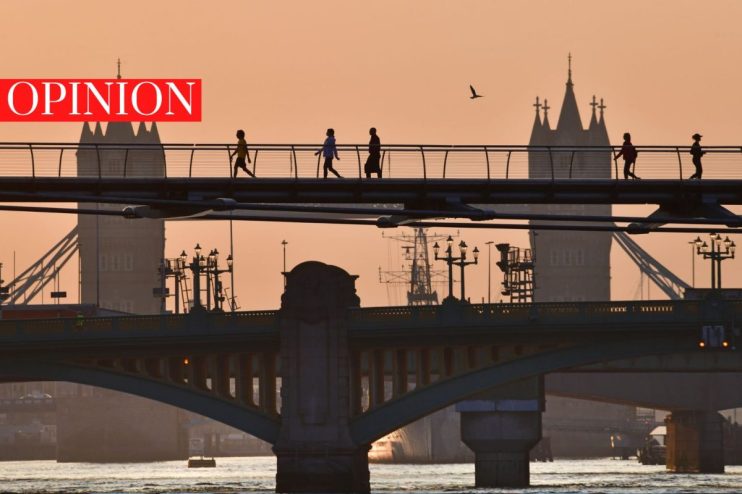Britain is shooting itself in the foot with prohibitive rules for skilled migrants

If we want skilled workers in Britain, we can’t keep making visas three times more expensive than other nations competing for talent, writes Derin Kocer.
There is a global race for talent. In the face of rapid technological transformation, talent has become a prized commodity more sought after than ever before. Western nations aren’t only competing against adversaries to attract and retain the world’s best professionals, innovators and entrepreneurs, they are also competing with each other.
Talent shortages are evident all over the world. Semiconductor moguls in the US had to delay opening new manufacturing plants due to a shortage of advanced engineers. Meanwhile, British business leaders have been listing “access to talent” as a main challenge to their firms for years. The World Economic Forum estimates that half of the workforce will require some kind of reskilling and training to stay as productive as they are today. With demographic changes demand will only become more acute.
Foreign talent is already the backbone of British business. As shown in our recent report, Job Creators 2023, 39 of our 100 fastest-growing firms – such as Kroo, Zapp and Zilch – have an immigrant founder or co-founder, despite the foreign-born population being under 15 per cent.
Historically, the UK has been a beneficiary of skilled immigration. Immigrants have been job creators, productivity hackers and entrepreneurs. Business ownership rates are higher among immigrants than the native-born population. Studies examining enterprise data show that UK businesses with more immigrants are more likely to increase their productivity and innovate. Britons seem to know this by heart. In the face of all the tough talk on immigration, a recent poll by Kantar Public and Migration Observatory indicates that 60 per cent of the UK public would like to see immigration made easier for “high-skilled workers”.
Attracting talent is a quality that needs to be mastered. However, with the proposed visa fee increases to pay public sector wage hikes, the government is actively choosing to hinder the UK’s attractiveness. Currently, companies must pay for a sponsorship licence to employ non-UK nationals and pay fees up to £1,476, as well as covering application costs, health surcharge and an immigration skills charge that can go up to £1,000. All of these conspire to make employing immigrants a costly and bureaucratic decision.
The UK already has a dramatically expensive immigration system. For skilled workers on a path to permanent residency, visas can cost nearly three times what they would in Australia, around 12 times in Canada and around 43 times what they would in Germany. According to Gallup, an international pollster, these countries are already more popular destinations for potential migrants. Common sense dictates that the government should be focused on easing fees.
However, the government is making matters worse by increasing the costs for migrants. The planned policy update includes a 15 per cent increase for work and visit visas and a 20 per cent increase for certificates of sponsorship. The health surcharge is also expected to increase by a whopping 66 per cent.
For some time, the Treasury and the Home Office seemed to agree that the visa system should pay for itself. Now, they interpret the immigration system as a way to pay for other government expenses. This is a short-sighted understanding of immigration which does not factor in the fact that high-potential individuals create much more wealth for the UK than they “cost” – by paying taxes and building companies. Skilled migration is an investment with promising returns.
When we first looked at the percentage of foreign-born founders back in 2019, we found that 49 per cent of the UK’s fastest-growing businesses had a foreign-born founder. Rishi Sunak referenced this data to acknowledge the contribution of migrant entrepreneurs to the UK economy in his 2021 Autumn Budget. To ensure that this decline is just a blip and not a trend, Sunak’s Government should be focused on making Britain more attractive for the world’s most talented – not more costly.